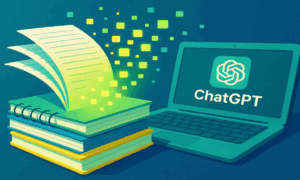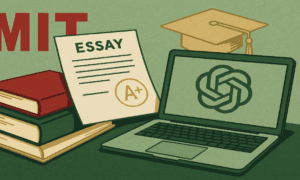Artificial intelligence (AI) has created a divide in the world of education. On one side are those who fear AI-driven tools like ChatGPT will undermine the educational process, but on the other are those who see AI as a way to improve education, making it more equitable, efficient, and engaging.
Joseph Wilson, co-founder of Studicata, is among those who believe AI is a boon to education that will eventually be widely embraced. “If we allow the fears about how AI could be used for cheating to justify keeping it out of the classroom, then we are doing students a disservice,” Wilson says. “Now is the time to update the way we teach, leveraging AI to provide students with a more personalized and impactful education.”
Studicata is a leading online educational preparatory platform for law school finals and the bar exam. Using the “explain it to me like I’m five years old” approach, Studicata strays away from traditional, convoluted legal prep courses by educating students in a streamlined, foolproof way. The platform has helped over 100,000 students.
Studicata’s YouTube channel — where it provides access to more than 110 hours of video content in more than 170 video modules — has attracted more than 34,000 subscribers and earned more than 4 million video views. The consistent contact that Wilson and his team have with students via the channel contributes to them “being on the pulse” when it comes to emerging trends and the ways in which AI and other educational tools are assisting those training for legal careers.
“AI is improving access to legal education by empowering personalized learning, more nuanced legal research, accelerated document drafting, detailed legal simulations, and more,” Wilson says. “It is making legal education more accessible, efficient, and impactful, opening the doors to allow more individuals to learn about law, pass challenging exams, and pursue their dream careers in the legal field.”
ChatGPT is an example of an AI-driven tool that students can use in a number of ways as they are preparing for course finals and bar exams. Its generative-AI engine can assist with outlining and developing the structure for essay portions of exams as well as making suggestions on ways in which writing can be improved. ChatGPT can also be used to prepare study aids — such as flashcards or quick sheets — which are essential to students as they memorize and review test topics.
For legal educators, AI provides a new generation of tools for assessing data to gauge student understanding and develop personalized training, as law students must master a large number of topics. By using AI tools to pinpoint where individual students are struggling, educators can more effectively guide students to the information that is most relevant to their specific learning needs. These tools can also reveal the ways in which course content or teaching methods can be updated or revised to improve learning outcomes.
Wilson believes now is the time for law schools to lay the foundations for AI-empowered education. While some schools have taken a public stance either for or against the use of AI-driven tools, many have yet to provide students with guidance on what use, if any, will be tolerated.
“Educators need to take the first step and communicate with their students regarding what is acceptable use,” Wilson says. “It is time to start building a framework for AI in education. Will it be allowed? What type of use is okay? What is prohibited? We need to mitigate the ways in which it could be used for cheating, but we also need to teach familiarity with AI tools. The future of the legal profession will involve tech-enhanced lawyers who know how to leverage AI.”



































